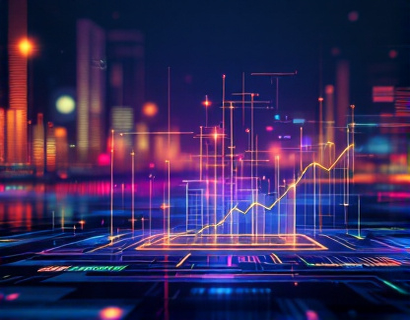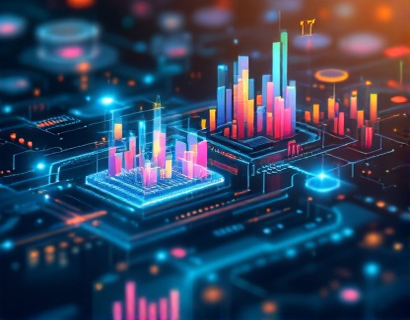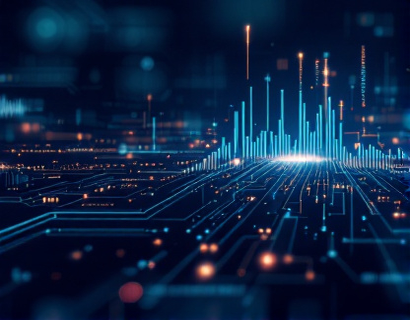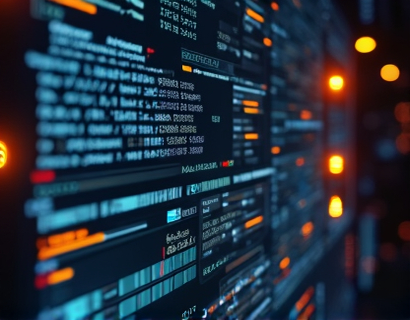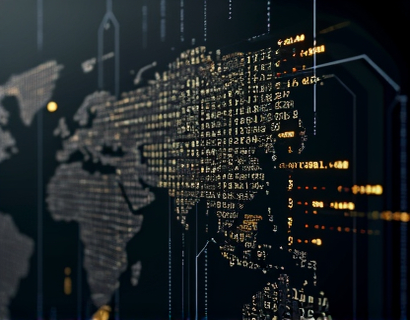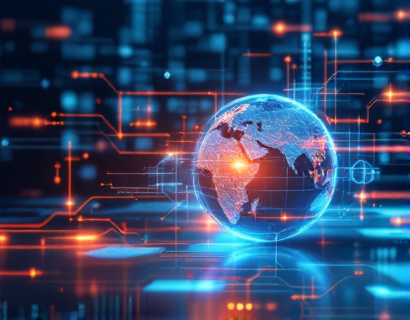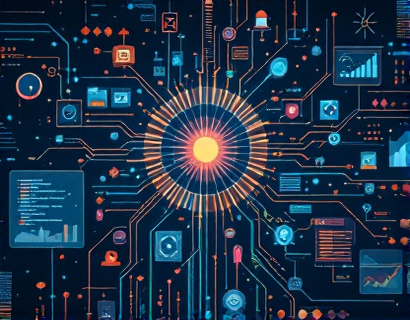Revolutionizing Digital Finance: The Synergy of AI and Crypto
The intersection of artificial intelligence and cryptocurrency is ushering in a new era of digital finance, one that promises unparalleled efficiency, security, and innovation. This article delves into the transformative impact of merging these two cutting-edge technologies, exploring how they are reshaping financial services and opening up new avenues for the future. For tech enthusiasts and innovators, this is a critical look at the intelligent solutions that are redefining digital interactions and financial management.
The Rise of Intelligent Cryptocurrencies
Cryptocurrencies, once seen as mere digital currencies, are evolving into sophisticated assets powered by AI. These intelligent cryptocurrencies leverage machine learning algorithms to enhance functionality, security, and user experience. One of the primary advantages is the ability to predict market trends with greater accuracy. By analyzing vast amounts of data, AI can identify patterns and make predictions that traditional methods might miss. This predictive capability allows investors to make more informed decisions, potentially leading to higher returns and reduced risks.
Moreover, AI-driven cryptocurrencies can automate transactions and smart contracts, reducing the need for intermediaries and lowering transaction costs. For instance, AI can optimize the execution of trades by continuously monitoring market conditions and adjusting strategies in real-time. This level of automation not only increases efficiency but also minimizes human error, ensuring a smoother and more reliable trading experience.
Enhanced Security Through AI
Security has always been a paramount concern in the crypto space, and AI is playing a pivotal role in addressing these challenges. Traditional security measures, such as firewalls and encryption, are being augmented with AI-powered systems that can detect and respond to threats in real-time. Machine learning algorithms can analyze transaction patterns to identify anomalies and potential fraud, providing a proactive defense mechanism.
One significant application is in the realm of identity verification and anti-money laundering (AML) compliance. AI can process and analyze vast amounts of user data to verify identities and detect suspicious activities with high precision. This not only enhances security but also ensures that platforms comply with regulatory requirements, fostering trust among users and stakeholders.
Personalized Financial Services
The integration of AI in cryptocurrency is not just about enhancing security and efficiency; it's also about personalization. AI algorithms can analyze user behavior, preferences, and financial goals to offer tailored financial services. For example, a crypto-based financial advisor powered by AI can provide personalized investment recommendations based on an individual's risk tolerance, investment horizon, and market conditions.
Furthermore, AI-driven robo-advisors can manage portfolios, rebalance assets, and adjust strategies based on real-time market data. This level of personalization ensures that users receive customized solutions that align with their unique financial objectives, making the crypto space more accessible and user-friendly.
Decentralized Finance (DeFi) and AI
Decentralized Finance, or DeFi, is a revolutionary movement that aims to create financial systems without central authorities, leveraging blockchain technology. AI is further enhancing DeFi by introducing intelligent protocols and automated processes. For instance, AI can optimize lending and borrowing platforms by dynamically adjusting interest rates based on supply and demand, ensuring fair and efficient market operations.
Smart contracts, a cornerstone of DeFi, can be enhanced with AI to execute complex logic and conditions automatically. This reduces the need for manual intervention and ensures that agreements are enforced precisely as intended. AI can also predict potential risks and vulnerabilities in smart contracts, helping developers to create more robust and secure protocols.
Cross-Chain Interoperability
One of the most exciting developments at the intersection of AI and crypto is the push towards cross-chain interoperability. AI algorithms can facilitate seamless communication and asset transfer between different blockchain networks, overcoming the siloed nature of current systems. This interoperability is crucial for building a unified and interconnected financial ecosystem.
AI can analyze and optimize cross-chain transactions, ensuring they are secure, fast, and cost-effective. By automating the process of bridging different blockchains, AI helps to break down barriers and enables a more fluid exchange of assets and data. This not only enhances the user experience but also opens up new possibilities for decentralized applications and services.
AI-Powered Crypto Exchanges
Crypto exchanges are the heart of the cryptocurrency ecosystem, and AI is transforming how they operate. AI-driven exchanges can offer real-time market analysis, advanced order matching algorithms, and sophisticated risk management tools. These exchanges can automatically adjust trading algorithms based on market conditions, ensuring optimal execution and minimizing slippage.
Additionally, AI can enhance the user interface and experience by providing intuitive tools for order management, portfolio tracking, and market insights. For institutional investors, AI-powered exchanges can offer sophisticated analytics and reporting features, enabling better decision-making and compliance management.
Challenges and Considerations
While the potential of AI in the crypto space is immense, there are several challenges and considerations that must be addressed. One of the primary concerns is the regulatory landscape. As AI and crypto continue to evolve, regulators are grappling with how to oversee these innovative technologies. Ensuring compliance while fostering innovation requires a balanced and forward-thinking approach.
Another challenge is the technical complexity involved in integrating AI with blockchain systems. Developing robust and scalable solutions that can handle the high transaction volumes and security requirements of the crypto space is no small feat. Continuous research and development are essential to overcome these technical hurdles.
Moreover, the ethical implications of AI in finance cannot be ignored. Issues such as bias in AI algorithms, data privacy, and the potential for misuse must be carefully managed. Transparency and accountability in AI-driven financial services are crucial to building trust and ensuring fair practices.
The Future of AI and Crypto
Looking ahead, the synergy between AI and crypto is poised to revolutionize digital finance in ways we are only beginning to imagine. As AI technologies advance, we can expect even more sophisticated intelligent solutions that enhance the functionality, security, and accessibility of cryptocurrency. The future may see the emergence of AI-powered virtual assistants for financial management, advanced predictive analytics for market forecasting, and fully decentralized AI-driven financial platforms.
The collaboration between AI and crypto is not just a technological advancement; it's a paradigm shift in how we think about finance. By leveraging the strengths of both domains, we can create a more efficient, secure, and inclusive financial ecosystem. For tech enthusiasts and innovators, this is an exciting time to be at the forefront of this revolution, exploring and contributing to the next generation of intelligent crypto solutions.








